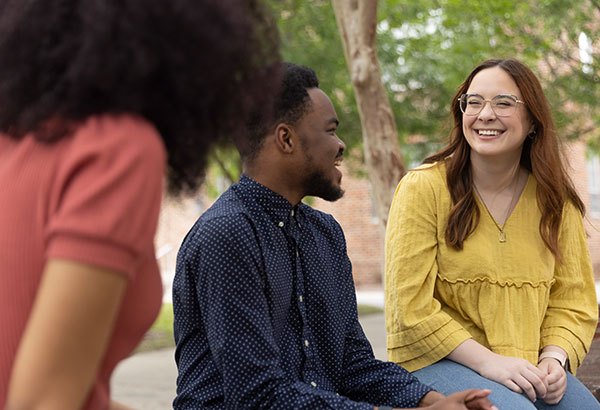Southeastern > Academics > Academic Programs > Experiential Learning > News & Events > Outsourcing Opportunity?
NEWS & EVENTS
More news stories
APRIL 18, 2024Differentiated Instruction Online: Questions and Answers
Aligning Course Practice with "Eight Principles of Experiential Learning"
Me, Too: Experiential Learning for Instructors
Awareness of Risk in Experiential Learning
Understanding Student Fears
FAQs in Online Experiential Education
Outsourcing Opportunity?
Tuesday, April 25, 2017
Dr. Jack B. Bedell
Professor and Graduate Coordinator of Creative Writing
When I first became involved in Experiential Learning here at Southeastern, my primary concern was establishing viable, productive internships for students in the Department of English’s Editing and Publishing and Creative Writing concentrations. While our Professional Writing graduate students have been placed in working internships as part of their thesis process for years, our department was relatively new to finding external internships for our undergraduates, and the task of developing an internship program suitable for students in our programs and yet still attractive to potential external partners was quite daunting for me.
To learn as much as I could about creating viable internships for Southeastern students as quickly as I could do so, I attended the 2015 National Society for Experiential Education armed with a long list of questions, and an almost equally long list of fears. Being a creative writing teacher with no legal or business background, my main fear was that I wouldn’t be prepared to broker partnerships effectively. I was also concerned about managing the additional workload involved in overseeing/stewarding students involved in any internship we could cook up. In fact, I had serious doubts as to whether any full-time teacher with additional committee/administrative responsibilities had adequate time and energy to manage an internship program from within the university structure.
No matter how committed a university professor is to providing experiential learning opportunities to students, and no matter how much preparation and research is put into getting “up to speed” on constructing internships and other EL activities, all teachers suffer from limited time and limited resources. As university employees, we are bound by semester calendars, enrollment figures, travel/financial regulations, and insurance issues. And for me, personally, I am handicapped by a lack of training outside my discipline when it comes to understanding workplace considerations.
Aside from providing a plethora of examples of EL activities not involving internships for me to consider, thus broadening my concept of what’s possible in terms of experiential education, the 2015 NSEE conference afforded me the chance to meet someone versed in provided internship opportunities to undergraduates, and that meeting was eye-opening.
At the main conference luncheon, I had the privilege of sitting next to the chairman and founding member of a professional internship company. A former college professor himself, this person encountered many of the fears and limitations I had. Instead of being frustrated by these concerns, though, he saw an opportunity to fill a niche higher education could not fill adequately beyond learning abroad programs and a system of local, individual internships. He formed a private company offering educational internship placement to undergraduate students—in essence a third-party product available to students wishing to round out their college educations with EL experience.
Most amazing to me about this luncheon meeting was the fact I have NO idea such educational alternatives existed. Rather than feeling threatened by these private internships entities, it was clear to me that we needed to learn as much as we could from them in the same way we learned Online Learning principles from exclusively online universities. Private-industry companies do not have the luxury of failing as part of their learning process. They must structure all of their offering on sound, viable, profitable models. Instead of learning from our own mistakes and misfires, learning from for-profit EL companies seems like a quicker, more positive model to me now.
One of the more prominent, successful internship placement companies is City Internships. Founded in 2011 by Lewis Talbot, City Internships has now placed over a thousand students in internships around the globe. In the company’s own terms, it is “an accelerated learning provider offering private post-secondary, non-degree granting, full-time immersive in-person courses that combine intensive classroom-based workshops and seminars, practical work experience-based training and a link to potential employers.”
CI offers internship opportunities in several fields of interest, including banking/finance, marketing/advertising, technology/engineering, media/journalism, arts/design, and not-for profit charities. The company currently offers internships in twelve major cities around the globe—New York, Boston, Chicago, San Francisco, LA, Washington, DC, Austin, Miami, London, Paris, Sydney, and Hong Kong.
According to its website (city-internships.com), the company’s alumni “get hired three times more quickly (2.5 versus 7.5 months)” and “earn 30 per cent more ($45,000 versus $36,000) straight out of college.”
It strikes me that CI’s goals for placement and outcome are exactly the same as ours from within the university even though they are third-party educators providing a for-profit service. Their successes are achievable given similar structures and offerings to students here at Southeastern. What we lack within the university, however, is time dedicated solely to forging and to maintaining relationships with external business partners who provide these internship opportunities.
City Internship employees are paid forge and to maintain business partnerships with internship providers. As university professors, we are paid to teach our courses, conduct research, and to fulfill all service requirements dictated by our departments. Even with reassigned time, these workload obligations will not change in academe. As employees of a public university, it’s always going to be difficult for any of us to devote enough of our time to building an internship network like CI’s, no matter our commitment level to experiential education.
Certainly, the possibility exists to outsource opportunities for external internships to companies like City Internships. As we would in many other circumstances, we could always “let the professionals handle it.” But I didn’t come away from my luncheon meeting in 2015 with one of these pros thinking that was the best plan. Maybe it is the creative writer in me leading me to believe it, but I came away from that luncheon with an urge to take everything I possibly could from the for-profit internship company model, transpose that knowledge, and apply it as best I could to building a program for my own students that wouldn’t require outsourcing, a program intimately connected to our classroom experience and organic to our university goals. Hopefully, we can all work toward that goal as we head into Southeastern’s EL future.






